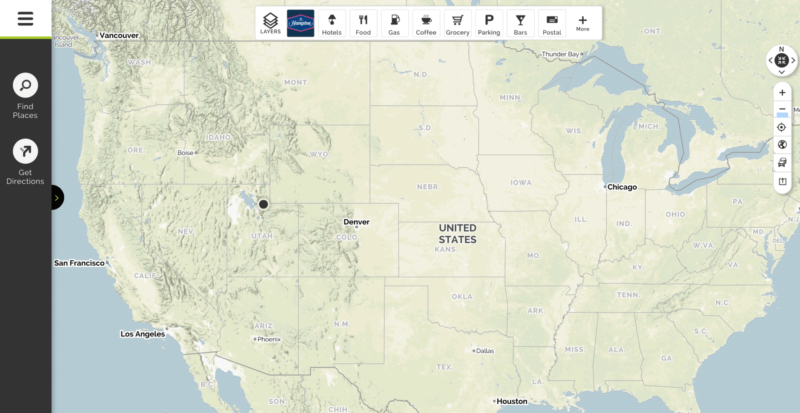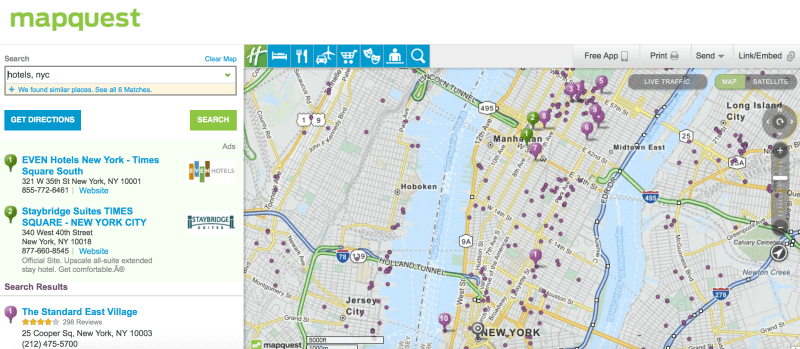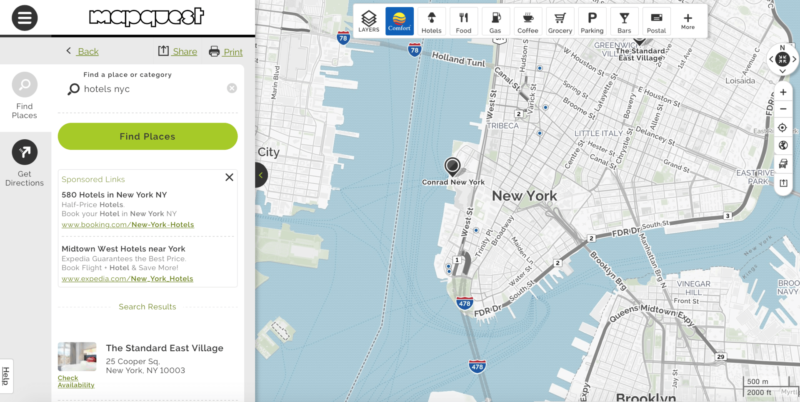Mapquest Gets A New Look And Logo
Mapquest has introduced a new look and a new retro-chic, 1970s-style logo. The changes are part of a series of upgrades begun prior to the Verizon-AOL acquisition and are largely a result of a new Mapquest partnership with Mapbox. The promised and enhanced features include or will include: A faster, more responsive Mapquest.com for mobile […]

Mapquest has introduced a new look and a new retro-chic, 1970s-style logo. The changes are part of a series of upgrades begun prior to the Verizon-AOL acquisition and are largely a result of a new Mapquest partnership with Mapbox.
The promised and enhanced features include or will include:
- A faster, more responsive Mapquest.com for mobile and desktop.
- New tablet experience to leverage Mapquest’s fastest-growing platform.
- New mobile experiences, including enhanced features for urban users.
- The intersection of content and utility will continue in all Mapquest consumer products with top partners such Priceline.com, OpenTable, SeatGeek and more.
Below are screenshots of the previous Mapquest UI (top) and the new one (bottom). The query results displayed are for “hotels NYC.”
The new UI is generally cleaner and more visually appealing than the old one. Category buttons are more obvious, and local listings content and individual business information are better presented. These enhancements are mirrored on the company’s new mobile website, as well.
While these changes represent aesthetic and performance improvements, I don’t believe they’re yet sufficient to reclaim defectors to Google, Apple and Bing. However, if Mapquest continues to invest and improve (now as part of Verizon), it may be able to attract new a new generation of users.
Mapquest was the market leader and the brand synonymous with digital maps until Google displaced it in early 2009. In 2007, Google removed links to competitors’ mapping sites from the top of search results, which AOL blamed internally for the overthrow of Mapquest.
More recently, Google Maps has been the subject of antitrust-related complaints by rivals in Europe and Russia that claim it’s an example of Google unfairly inserting its own vertical properties into search results. However, Google Maps has been around since late 2004.
Contributing authors are invited to create content for Search Engine Land and are chosen for their expertise and contribution to the search community. Our contributors work under the oversight of the editorial staff and contributions are checked for quality and relevance to our readers. The opinions they express are their own.
Related stories
New on Search Engine Land


